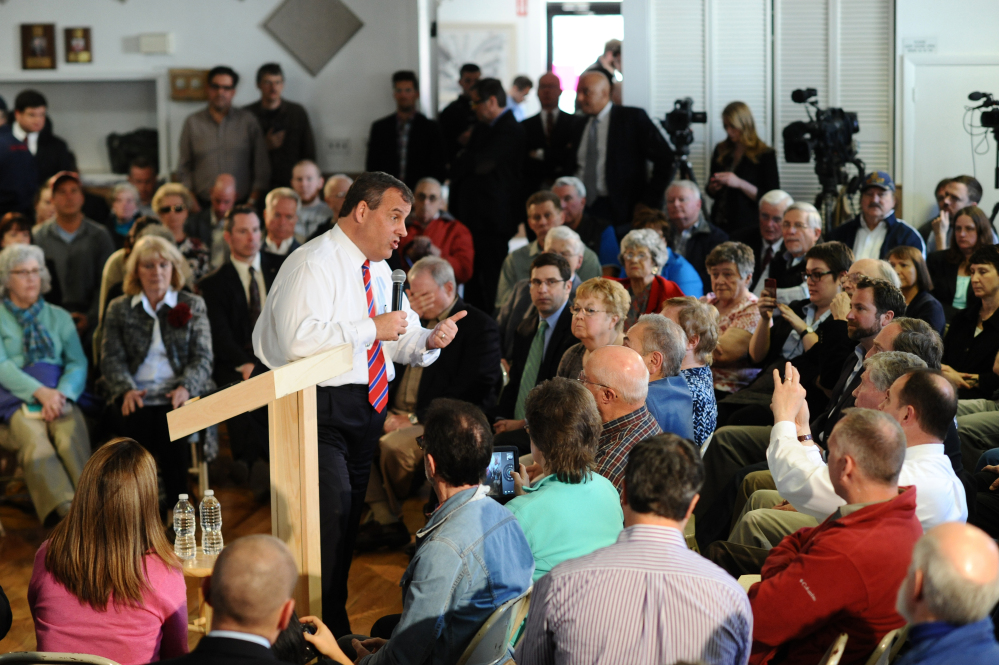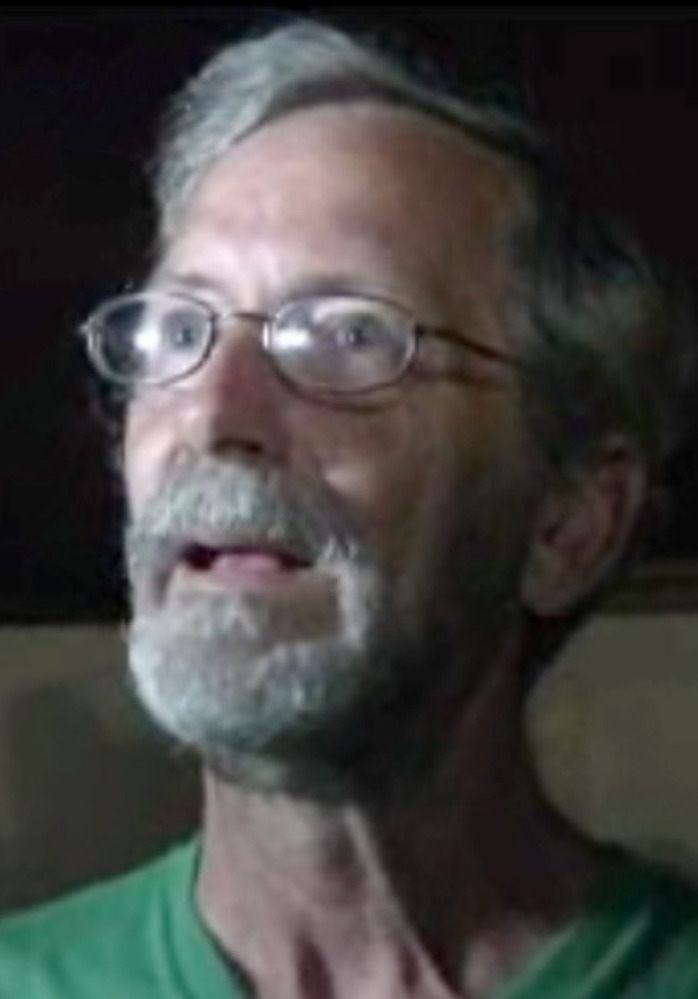At almost the same time last week that Florida mailman Doug Hughes was landing a gyrocopter in front of the U.S. Capitol to protest the influence of the wealthy on politics, New Jersey’s Republican Gov. Chris Christie was getting pressed about the same topic at a town hall meeting in Londonderry, New Hampshire.
“I think what is corrupting in this potentially is we don’t know where the money is coming from,” Christie told Valerie Roman of Windham, New Hampshire.
The two moments, occurring 466 miles apart last Wednesday, crystallized how money in politics is unexpectedly a rising issue in the 2016 campaign.
Hillary Rodham Clinton announced last week that one of the top planks of her bid for the Democratic presidential nomination will be reforming a “dysfunctional” campaign finance system. And several of her Republican rivals – quizzed by voters in town hall meetings – have begun lodging their own criticisms of how big-money interests dominate politics.
Turning disgust with billionaire super PAC benefactors into a platform that moves voters has been an elusive goal for activists seeking to curb the massive sums sloshing through campaigns. But five years after the Supreme Court’s Citizens United v. Federal Election Commission decision – which held it was unconstitutional to ban independent political spending by corporations and unions, and helped set off a financial arms race – there are signs that politicians are beginning to confront a voter backlash.
“I certainly don’t condone people flying mini-helicopters around government buildings, but I think it’s a powerful statement when a person is willing to actually risk his life for campaign finance reform,” said Daniel Weeks, executive director of the New Hampshire Rebellion, a project to make money in politics a major topic in the state’s presidential primary. “This is becoming an issue du jour, where people who are not part of any established group are really taking it into their own hands.”
On Saturday, the group led a 15-mile march of about 100 people from Lowell, Massachusetts, to Nashua, New Hampshire, where nearly 20 Republican presidential hopefuls gathered for a state party forum. The activists retraced Paul Revere’s famous ride to alert citizens about “the threat of big money,” Rebellion organizers said.
Conservatives who favor less regulation of political money scoffed at the notion that distaste for the growing role of wealthy donors will galvanize voters.
“That most Americans think money in politics is corrupting is nothing new,” said Bradley Smith, founder of the Center for Competitive Politics, which supports loosening campaign finance restrictions. “But when the rubber hits the road, most people say, ‘I don’t think my contribution should be disclosed. I don’t think my group should be hassled.’ ”
“There remains a major public disposition to not like money in politics, but a real small group of people for which this is a dominant issue,” Smith added.
A January survey by the Pew Research Center found that 42 percent of adults rated dealing with money in politics a top priority for the president and Congress; but among a 23-item list of priorities, it ranked fourth from the bottom. Still, that’s up from the 28 percent in 2012 who said reforming the campaign finance system should be a top priority.
For those who feel strongly about it, the 2016 primaries and caucuses – and the up-close access they bring to the presidential contenders – offer a ripe opportunity to elevate the topic.
In New Hampshire, nearly 500 people have volunteered to attend public forums and press the White House hopefuls about money in politics, Weeks said.
At the town hall in Londonderry, Roman, a 58-year-old retired IT director, asked Christie about the “corrupting” influence of big donations.
In response, Christie called fundraising “one of the most difficult, distasteful parts of the job” and endorsed a system of unlimited contributions with immediate disclosure.
“There has to be an absolute rule that 24 hours later you will reveal those contributions on the Internet, publicly available, so members of the public can scroll down on their computer,” he said.
Other Rebellion volunteers have elicited strong reactions from Sen. Rand Paul, R-Ky., and Sen. Lindsey O. Graham, R-S.C.
Copy the Story LinkSend questions/comments to the editors.




Success. Please wait for the page to reload. If the page does not reload within 5 seconds, please refresh the page.
Enter your email and password to access comments.
Hi, to comment on stories you must . This profile is in addition to your subscription and website login.
Already have a commenting profile? .
Invalid username/password.
Please check your email to confirm and complete your registration.
Only subscribers are eligible to post comments. Please subscribe or login first for digital access. Here’s why.
Use the form below to reset your password. When you've submitted your account email, we will send an email with a reset code.